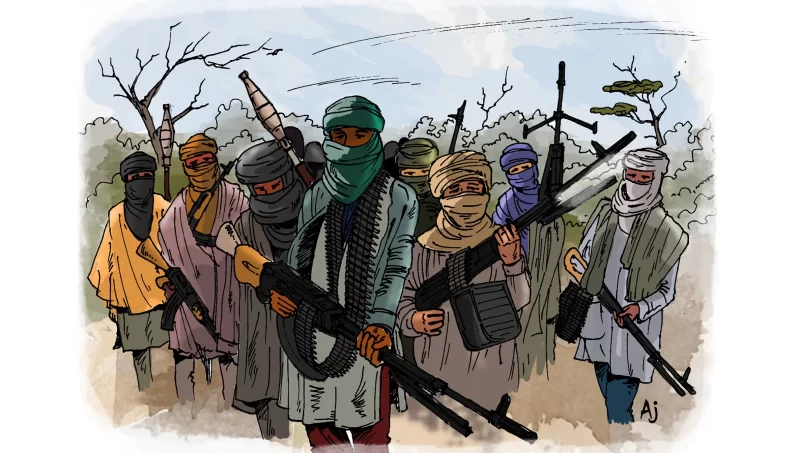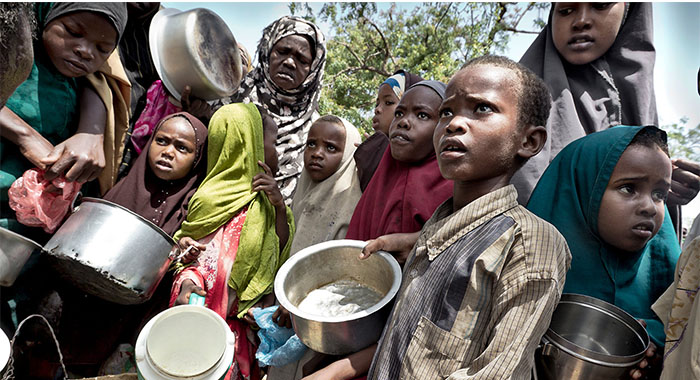Africa
Lassa Fever Is A Silent War – And We Are Losing It -By Ijanada Samuel Thliza
This is not just a call to action. It’s a plea for responsibility. Every state government in an affected zone should declare a local emergency on Lassa fever. The Federal Government must invest in vaccines, improve sanitation, fund research, and retool health systems. Media houses must give this the attention it deserves. And you — yes, you reading this — must keep your home clean, cover your food, and help educate your neighbor.

In the loud din of Nigeria’s everyday crises — insecurity, rising inflation, and political infighting — one quiet killer has continued its deadly march almost unnoticed: Lassa fever. As of the first week of August 2025, it has taken 155 lives. That’s not just a statistic; it’s 155 families shattered, hundreds of loved ones grieving, and a nation that remains disturbingly numb.
It is ironic, almost tragic, how something as dangerous as Lassa fever barely makes front-page headlines anymore. This year alone, 822 confirmed cases have been recorded across 21 states and over 100 local government areas. If it were an insurgent group or a political scandal, we would be drowning in noise. But because Lassa fever kills quietly — with no gunshots, no sirens — it slips through our national consciousness like a whisper.
Yet the numbers should alarm us. The case fatality rate now stands at 18.9%, higher than last year’s. In simple terms, nearly 1 in every 5 people diagnosed with Lassa fever in Nigeria this year has died. That’s not just a health statistic; it’s a warning bell.
Let’s talk geography. Ondo, Bauchi, Edo, Taraba, and Ebonyi lead the chart of affected states. Year after year, these same regions suffer the brunt. Why? Because the conditions that allow Lassa fever to thrive — poor sanitation, rodent infestations, overstretched health systems — are still as present as ever. We don’t seem to learn. Or worse, we don’t seem to care.
Here’s what makes this more painful: Lassa fever is preventable. The virus is primarily spread by contact with rat urine or feces, especially through contaminated food. Cleanliness, food safety, early treatment, and public awareness can dramatically reduce its spread. But none of those things can happen in a country where people eat dinner with rats scurrying across the ceiling and where health education ends at the city gates.
While global attention is often focused on more dramatic outbreaks like Ebola or COVID-19, Lassa fever continues to quietly ravage our communities every year. It doesn’t make international news. It doesn’t get billions of naira in emergency response funds. It doesn’t even stir national outrage. And so it festers.
Let’s be blunt: our health system is unprepared. Diagnosis is slow. Treatment is limited. There is no licensed vaccine. And health workers — our first line of defense — are undertrained, underpaid, and often underequipped. Even the antiviral drug Ribavirin, the standard treatment for Lassa, is only partially effective and works best when administered early — which rarely happens.
Yet, there’s a sliver of good news. In the last reporting week, no health worker was infected. That’s progress, and it suggests that perhaps the health protocols around patient management are improving. But one small win cannot blind us to a bigger failure: our country is still bleeding from a disease we should have caged decades ago.
There are also deeper societal failures here. Poor waste disposal, rodent-infested homes, unsafe food storage, and lack of health education are all symptoms of a broader neglect — one that comes from government and citizens alike. We live in a society where hospitals lack gloves, where labs can’t run basic tests, and where rural dwellers turn to traditional healers until it’s too late.
Meanwhile, pregnant women, children, and the poor are the most affected. In many Lassa-endemic communities, being poor is a death sentence. Is this not a national disgrace?
So, where is the outrage? Where are the emergency jingles, the school programs, the community health drives? Where are the lawmakers shouting about this on the Senate floor? Must everything wait until the elite start dying before it becomes “urgent”?
This is not just a call to action. It’s a plea for responsibility. Every state government in an affected zone should declare a local emergency on Lassa fever. The Federal Government must invest in vaccines, improve sanitation, fund research, and retool health systems. Media houses must give this the attention it deserves. And you — yes, you reading this — must keep your home clean, cover your food, and help educate your neighbor.
Lassa fever is not a distant rural disease. It’s a national threat. And until we treat it like one, it will continue to pick us off — one family, one village, one future at a time.
Ijanada Samuel Thliza Is A 300 Level Student From Mass Communication Department University Of Maiduguri.























